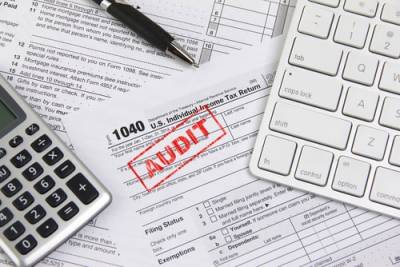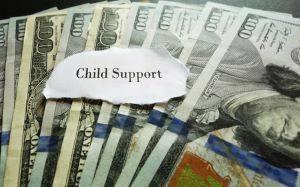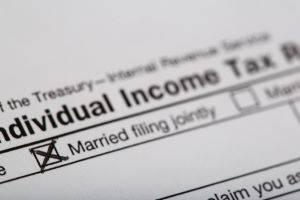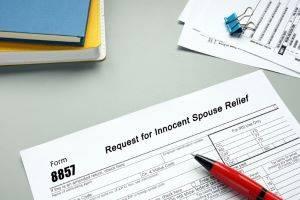Recent Blog Posts
IRS Resumes Tax Collection Programs Suspended Due to COVID-19
During the COVID-19 pandemic, many individuals, families, and businesses have experienced financial difficulties, and to help avoid additional strain that would affect the national economy, the IRS temporarily suspended some of the activities it usually takes to collect unpaid taxes. However now that the United States is emerging from this national emergency with many businesses reopening and people returning to work, the IRS has stated that it will be resuming its regular collection programs. Taxpayers who are facing tax audits or who have unpaid taxes will need to be aware of the potential types of actions that the IRS may take against them.
IRS Tax Enforcement Operations
 As of June 15, 2021, the IRS has begun to return to its normal practices of collecting taxes. Typically, the IRS sends notices to taxpayers who have tax debts, informing them of the balance that is due. The IRS will be following up with those who have not responded to these notices. Those who have tax liabilities from tax returns filed for 2019 or 2020 are required to respond to notices from the IRS within 30 days, either by paying the amount due or requesting an offer in compromise or other forms of relief. This window is extended to 45 days for those who reside outside the United States. Beginning August 15, 2021, anyone who has failed to respond to a notice from the IRS may be subject to tax liens or levies.
As of June 15, 2021, the IRS has begun to return to its normal practices of collecting taxes. Typically, the IRS sends notices to taxpayers who have tax debts, informing them of the balance that is due. The IRS will be following up with those who have not responded to these notices. Those who have tax liabilities from tax returns filed for 2019 or 2020 are required to respond to notices from the IRS within 30 days, either by paying the amount due or requesting an offer in compromise or other forms of relief. This window is extended to 45 days for those who reside outside the United States. Beginning August 15, 2021, anyone who has failed to respond to a notice from the IRS may be subject to tax liens or levies.
How Can COVID-19 Relief Affect Tax Issues During Divorce?
 The coronavirus pandemic has affected many people’s finances, but fortunately, different forms of relief have been made available from federal and state governments. While this has provided many people with benefits allowing them to meet their financial needs, it may also complicate certain matters. Couples who are going through a divorce will need to determine how COVID-19 relief may affect them, including whether they will be able to receive stimulus payments and claim tax credits. When addressing issues related to divorce and taxes, it is important to work with an attorney who can explain the laws and ensure that the decisions made are financially beneficial.
The coronavirus pandemic has affected many people’s finances, but fortunately, different forms of relief have been made available from federal and state governments. While this has provided many people with benefits allowing them to meet their financial needs, it may also complicate certain matters. Couples who are going through a divorce will need to determine how COVID-19 relief may affect them, including whether they will be able to receive stimulus payments and claim tax credits. When addressing issues related to divorce and taxes, it is important to work with an attorney who can explain the laws and ensure that the decisions made are financially beneficial.
COVID-19 Stimulus Payments and Tax Credits
Most people received multiple stimulus payments in 2020 and 2021 that were meant to address the ways that the COVID-19 has affected the national economy. These payments were treated as “recovery rebates,” and they functioned as a prepayment for tax credits that could be claimed when filing an annual tax return. The initial stimulus payment for individuals with an income of $75,000 or less was $1,200, and married couples who earn less than $150,000 received $2,400. Families were also able to receive a stimulus payment of $500 for each dependent child. Additional stimulus payments of $600 per individual were sent out in December 2020 and January 2021, and a third stimulus payment of $1,400 per individual, plus up to $1,400 per child, was sent in March 2021.
Do Gift Taxes Apply When Dividing Property During Divorce?
 Divorcing couples often need to address complex financial issues, especially if they will be dividing multiple types of property, assets, and debts. In addition to determining how they can divide all of their marital property fairly and equitably, couples will also need to understand how the decisions they make will affect their tax obligations. When addressing issues related to divorce and taxes, including gift taxes, it is important to work with an attorney who understands how tax laws apply to property settlements.
Divorcing couples often need to address complex financial issues, especially if they will be dividing multiple types of property, assets, and debts. In addition to determining how they can divide all of their marital property fairly and equitably, couples will also need to understand how the decisions they make will affect their tax obligations. When addressing issues related to divorce and taxes, including gift taxes, it is important to work with an attorney who understands how tax laws apply to property settlements.
Divorce Settlements and Non-Taxable Gifts
When a person makes a gift of money or property to someone else, gift taxes may apply, and a gift tax return may need to be filed. However, in most cases, transfers of property between spouses either before or after their divorce are exempt from gift taxes. Typically, these transfers will be considered non-taxable gifts if they fall into one of the following categories:
How Are Child Support and Spousal Support Payments Taxed?
 Couples who have decided to end their marriage will need to address a wide variety of financial issues. During this process, spouses will not only want to make financially advantageous decisions, but they will need to consider how these decisions will affect their taxes. One divorce-related tax issue that may arise involves determining how taxes will apply to child support or spousal support payments made by one party to the other.
Couples who have decided to end their marriage will need to address a wide variety of financial issues. During this process, spouses will not only want to make financially advantageous decisions, but they will need to consider how these decisions will affect their taxes. One divorce-related tax issue that may arise involves determining how taxes will apply to child support or spousal support payments made by one party to the other.
Taxes on Support Payments
In the past, child support and spousal support were taxed differently. The person who paid spousal support was able to deduct these payments from their taxable income, and the person who received spousal support was required to report these payments as part of their income and pay taxes on the amount received. Child support was handled differently, with the payor not being allowed to deduct payments, and the payee not reporting payments as income.
What Tax Filing Status Should I Use During My Divorce?
 Ending your marriage can be a difficult decision, but if you have decided that it is the best choice for you and your family, you will want to make sure you are taking the right steps to begin the next phase of your life on secure financial footing. In addition to addressing matters related to your property, income, and family finances, you will also need to look at your taxes. A variety of divorce-related tax issues may arise, and one of the most important is determining what filing status to use when filing your annual tax returns.
Ending your marriage can be a difficult decision, but if you have decided that it is the best choice for you and your family, you will want to make sure you are taking the right steps to begin the next phase of your life on secure financial footing. In addition to addressing matters related to your property, income, and family finances, you will also need to look at your taxes. A variety of divorce-related tax issues may arise, and one of the most important is determining what filing status to use when filing your annual tax returns.
Options for Filing Status for Divorcing Spouses
For the year when your final divorce decree was or will be issued, you will not be able to file taxes jointly with your spouse. That is, if you will be finalizing your divorce in 2021, you and your ex will each be required to file separate 2021 tax returns before the April 15th deadline in 2022. However if you are still legally married on December 31, 2021, you can still file a joint tax return for 2021.
IRS to Increase Tax Audits for Wealthy Individuals and Partnerships
 The Internal Revenue Service (IRS) regularly conducts tax audits of individual taxpayers and businesses. During an audit, it will seek to collect taxes that were underpaid due to misreported income, improper deductions, or other issues, as well as any applicable penalties. Under the administration of President Joe Biden, these efforts may increase, and the IRS will be looking to conduct more audits of individuals who earn high incomes or own significant assets, as well as large partnerships and corporations.
The Internal Revenue Service (IRS) regularly conducts tax audits of individual taxpayers and businesses. During an audit, it will seek to collect taxes that were underpaid due to misreported income, improper deductions, or other issues, as well as any applicable penalties. Under the administration of President Joe Biden, these efforts may increase, and the IRS will be looking to conduct more audits of individuals who earn high incomes or own significant assets, as well as large partnerships and corporations.
Increased IRS Budget and Focus on Closing the Tax Gap
President Biden recently announced the American Families Plan, a proposal that would increase infrastructure spending and provide aid to families with middle to low incomes. This proposal also included an increase in the IRS’s budget by $80 billion over 10 years. This increase would allow the IRS to conduct more audits and narrow the “tax gap,” or the difference between what U.S. taxpayers owe and what is actually collected. Experts believe that the tax gap is close to $1 trillion per year.
Why Is Careful Drafting of the Language in a Lease So Important?
 Whether you are a landlord or a tenant, you will want to make sure you fully understand the terms of your lease agreement. Commercial and residential leases address a wide variety of issues that affect landlords and tenants, and if the language in a lease is not carefully drafted, this can lead to disputes that could result in financial losses or other legal issues. Before signing a lease, it is important to have an attorney review the agreement and identify any language that may need to be revised or other issues that could lead to problems in the future.
Whether you are a landlord or a tenant, you will want to make sure you fully understand the terms of your lease agreement. Commercial and residential leases address a wide variety of issues that affect landlords and tenants, and if the language in a lease is not carefully drafted, this can lead to disputes that could result in financial losses or other legal issues. Before signing a lease, it is important to have an attorney review the agreement and identify any language that may need to be revised or other issues that could lead to problems in the future.
Terms to Address in a Residential or Commercial Lease
Some of the terms that should be reviewed before signing a lease include:
- Severability - This clause states that if one or more terms in a lease are found to be invalid, this will not affect any other provisions in the lease. If this clause is not included or is not worded properly, an entire lease agreement could be found to be invalid based on a single error.
When Is Innocent Spouse Relief Available for IRS Tax Debts?
 When a married couple files a joint tax return, “joint and several liability” will apply to any tax debts related to that return. This means that if the Internal Revenue Service (IRS) conducts a tax audit and determines that the couple owes taxes due to erroneous information on their joint tax return, the spouses will be equally liable for paying these tax debts. This can sometimes come as a surprise, especially if a couple has gotten divorced since filing the joint tax return in question. Even if a divorce decree addressed tax issues and states that one spouse will be responsible for paying joint tax debts, the IRS can still pursue repayment from both spouses. However in some cases, a person may receive innocent spouse relief if they were not responsible for the tax debts.
When a married couple files a joint tax return, “joint and several liability” will apply to any tax debts related to that return. This means that if the Internal Revenue Service (IRS) conducts a tax audit and determines that the couple owes taxes due to erroneous information on their joint tax return, the spouses will be equally liable for paying these tax debts. This can sometimes come as a surprise, especially if a couple has gotten divorced since filing the joint tax return in question. Even if a divorce decree addressed tax issues and states that one spouse will be responsible for paying joint tax debts, the IRS can still pursue repayment from both spouses. However in some cases, a person may receive innocent spouse relief if they were not responsible for the tax debts.
What Cryptocurrency Owners Need to Know About Taxes and the IRS
 The use of virtual currencies has become more and more widespread in recent years, especially in the Silicon Valley area. Many people and businesses invest in and trade cryptocurrencies and use them to make purchases or pay employees. As financial activity in this area continues to increase, the IRS has taken note, and it is taking steps to make sure taxpayers properly report these transactions and pay applicable taxes on the income they earn and the gains of their investments. Some recent developments have shown that those who own virtual currencies will want to make sure they are meeting the requirements under the tax laws.
The use of virtual currencies has become more and more widespread in recent years, especially in the Silicon Valley area. Many people and businesses invest in and trade cryptocurrencies and use them to make purchases or pay employees. As financial activity in this area continues to increase, the IRS has taken note, and it is taking steps to make sure taxpayers properly report these transactions and pay applicable taxes on the income they earn and the gains of their investments. Some recent developments have shown that those who own virtual currencies will want to make sure they are meeting the requirements under the tax laws.
IRS Clarifies Reporting Requirements for Virtual Currency
Those who have begun to file their tax returns for 2020 may have noticed that a new question has been added to Form 1040 asking “At any time during 2020, did you receive, sell, send, exchange, or otherwise acquire any financial interest in any virtual currency?” This indicates that the IRS will be monitoring these transactions and taking action to collect taxes that are owed. However, taxpayers have faced some uncertainty about exactly what types of transactions need to be reported. Recently, the IRS offered some clarification by stating that those who purchased cryptocurrencies using “real” currencies do not need to answer “yes” to this question.
IRS Expands Options for Using Installment Agreements to Pay Tax Debts
 Compliance with tax laws is a requirement for people and businesses in the United States, but some taxpayers may struggle to pay the taxes they owe. A person who has unpaid taxes may worry that they will be subject to collection actions by the Internal Revenue Service (IRS) such as wage garnishment or tax liens. Currently, this is a major concern for those who have experienced financial difficulties due to the COVID-19 pandemic. As part of its ongoing efforts to address these issues, the IRS has given taxpayers more options for paying the taxes they owe through installment agreements.
Compliance with tax laws is a requirement for people and businesses in the United States, but some taxpayers may struggle to pay the taxes they owe. A person who has unpaid taxes may worry that they will be subject to collection actions by the Internal Revenue Service (IRS) such as wage garnishment or tax liens. Currently, this is a major concern for those who have experienced financial difficulties due to the COVID-19 pandemic. As part of its ongoing efforts to address these issues, the IRS has given taxpayers more options for paying the taxes they owe through installment agreements.
Installment Agreements Under the Taxpayer Relief Initiative
Taxpayers with outstanding tax liabilities have the option to pay off the amount they owe over time by making regular payments to the IRS. To qualify for an installment agreement, a taxpayer will need to have filed all required tax returns and tax forms. To address the financial issues that many people have experienced due to the COVID-19 crisis, the IRS has created a Taxpayer Relief Initiative that has expanded people’s ability to use installment agreements. The changes made under this program include:









